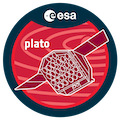Speaker
Description
By characterizing precisely both exoplanet and parent star and their age, PLATO will bring a new perspective to the study of exoplanets and the understanding of their evolution and formation history. For planets with large atmosphere, their progressive cooling and contraction may be constrained. The possibility to measure secondary eclipses and infer eccentricities of close-in planets means that the role of tides and dissipation in both orbital and thermal evolution may be tested. The prevalence of planets with hydrogen atmosphere with possibly high molecular weight also means that convection inhibition must be considered and quantified. I will discuss the latest developments on the subject and the consequences for the analysis of the PLATO data.

